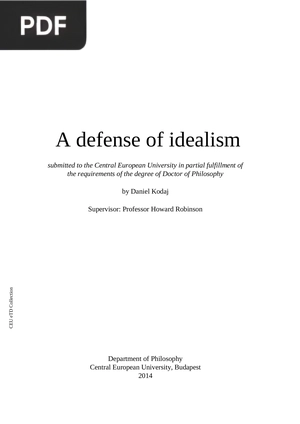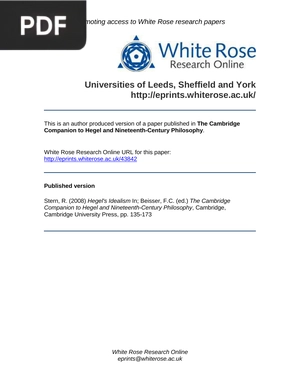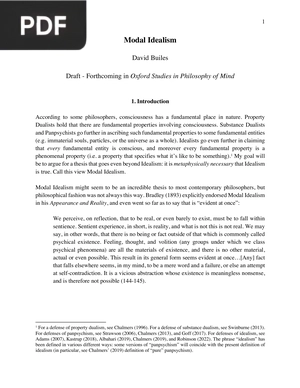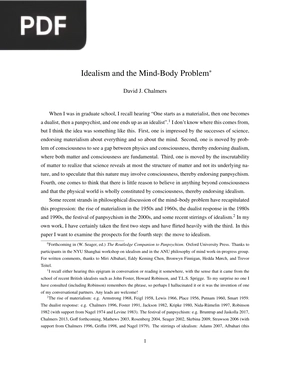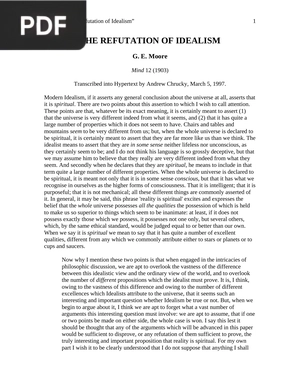History and Idealism - The Theory of R. G. Collingwood
Author: Saul A. Kripke
*Please wait a few seconds for the document to load; the time may vary depending on your internet connection. If you prefer, you can download the file by clicking the link below.
Loading PDF...
Document Details
Title: History and Idealism - The Theory of R. G. Collingwood
Author: Saul A. Kripke
Pages: 24
Size: 0.1 MB
Format: PDF

